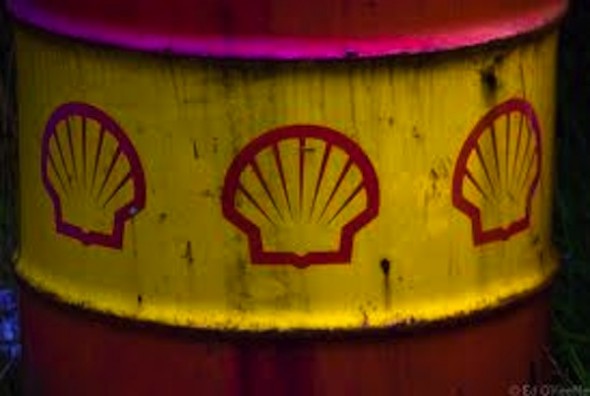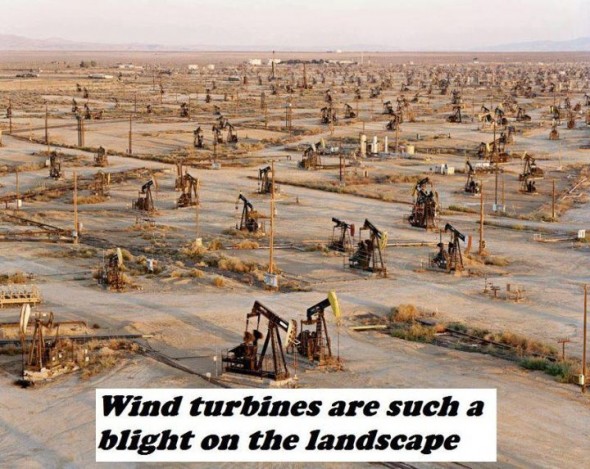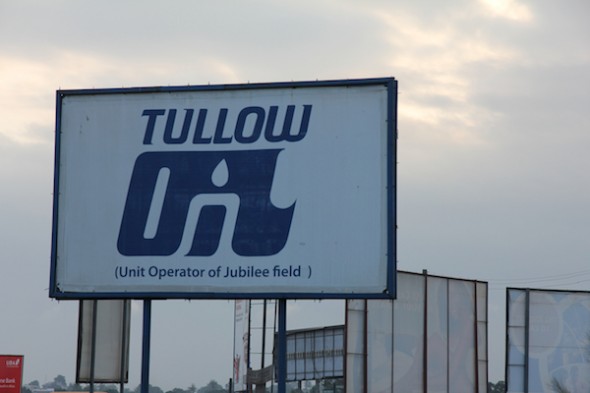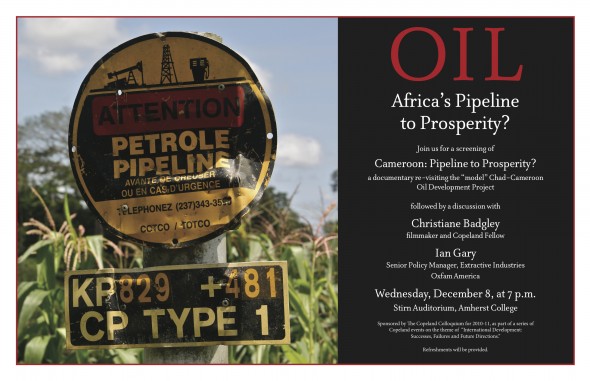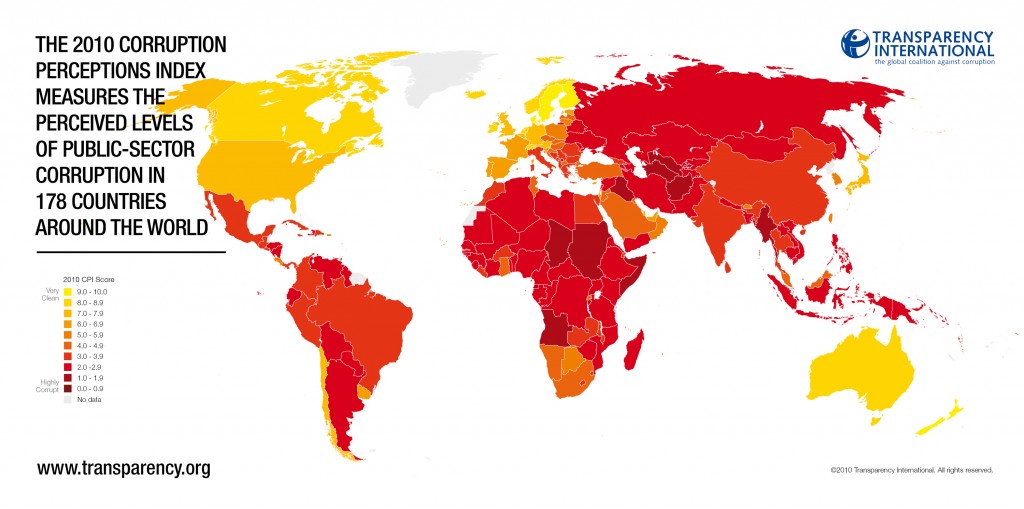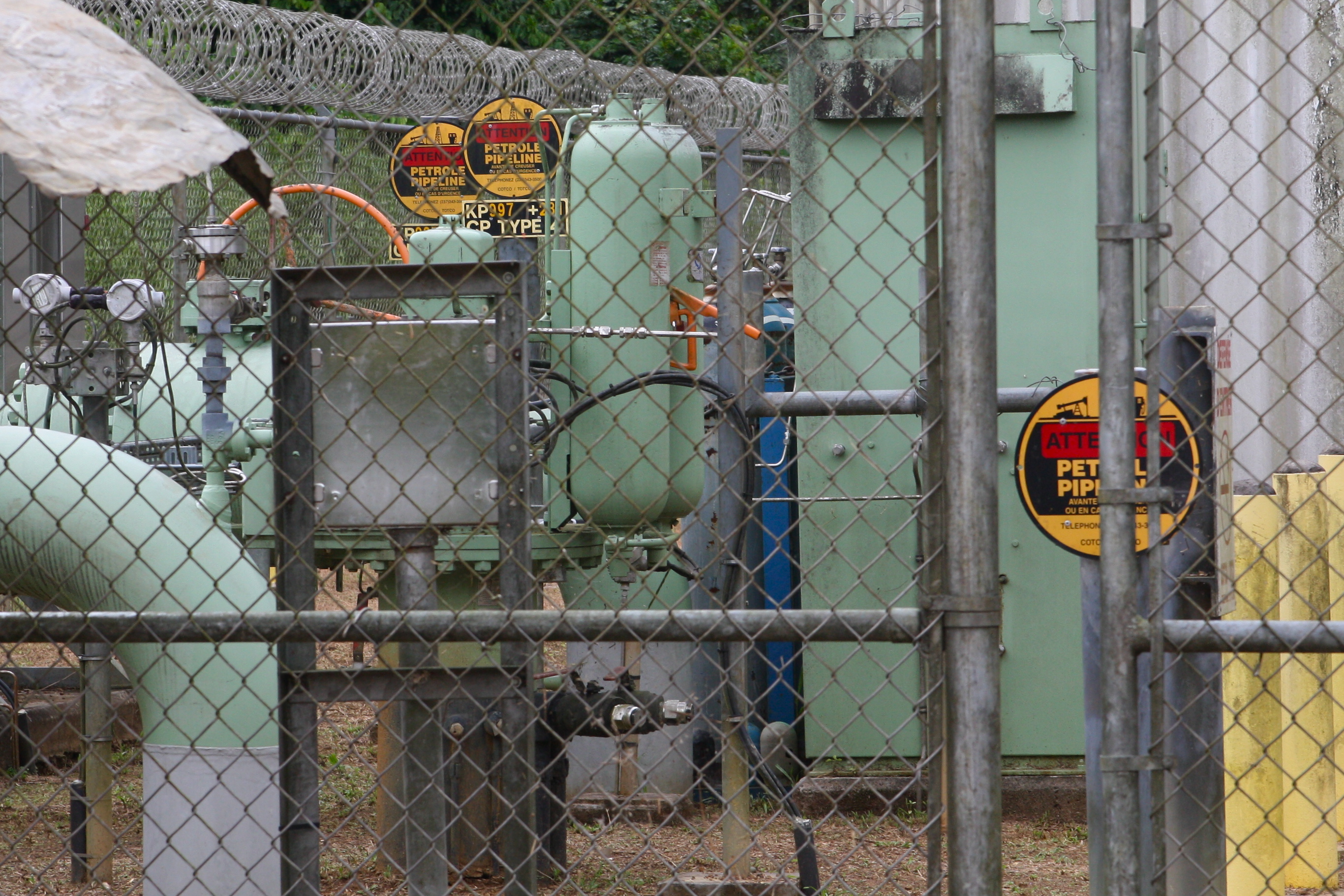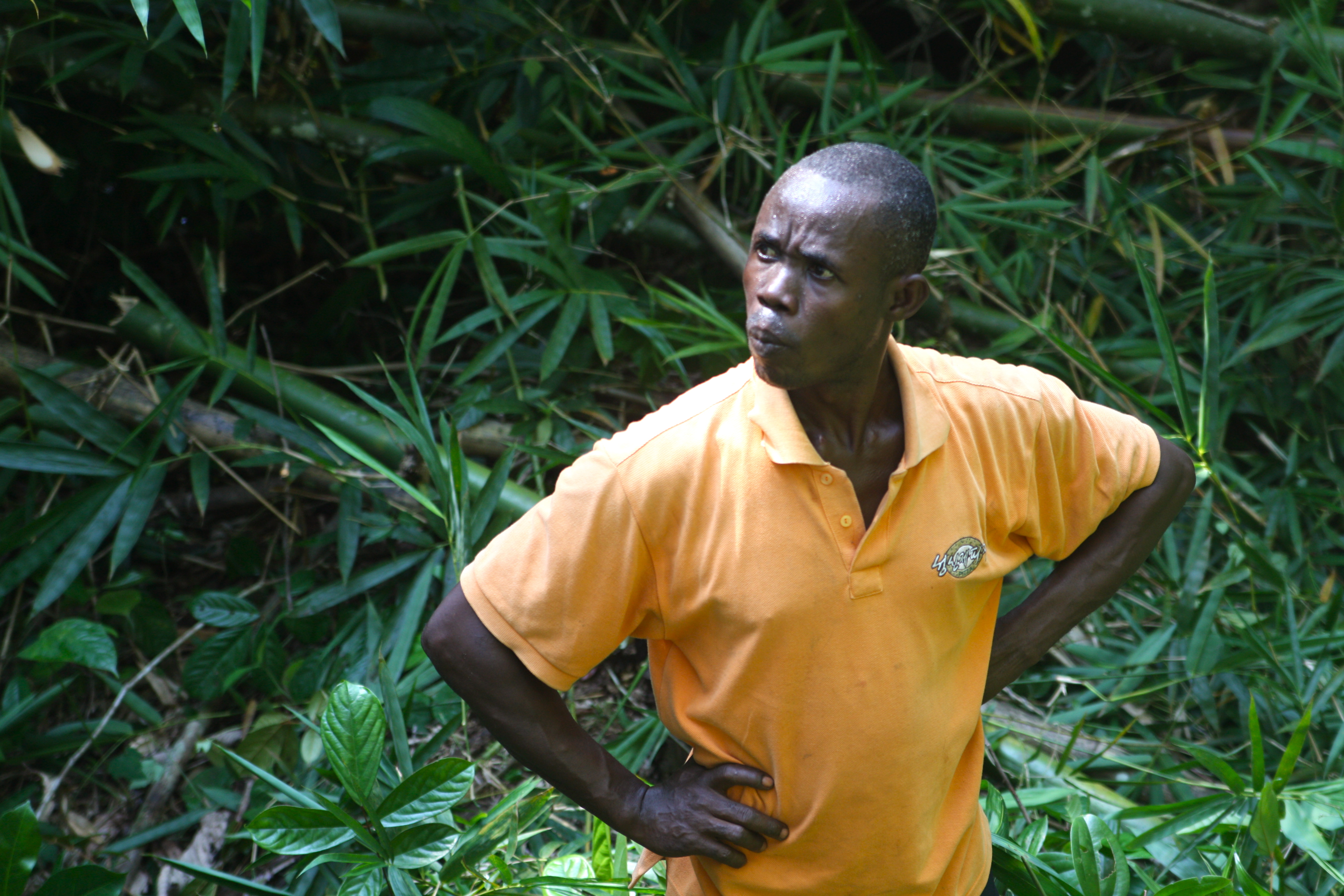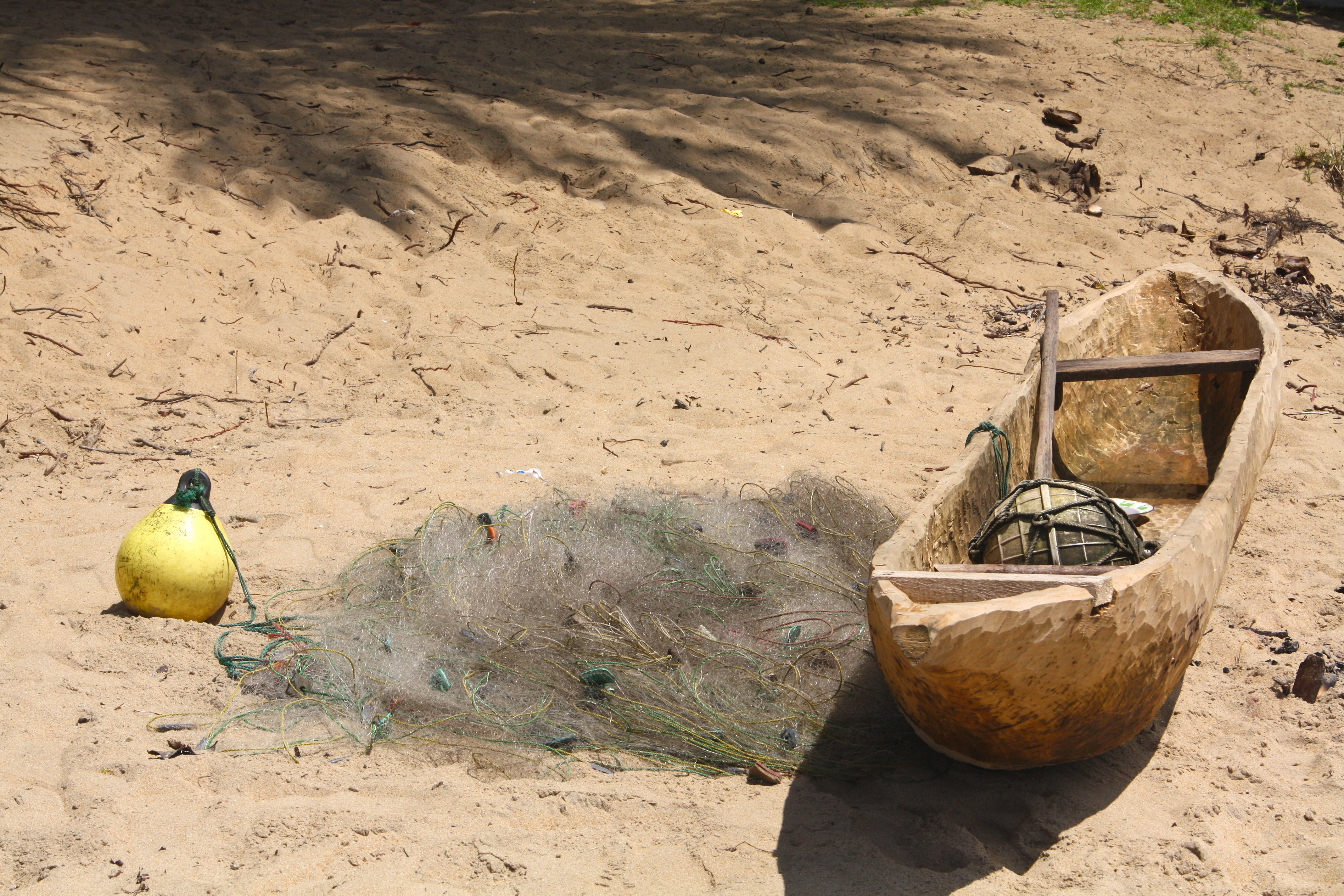Shell Shareholders at Risk from Billion Dollar Nigerian Oil Scandal, says Global Witness
Following is a press release from Global Witness:
Shell‘s role in a billion dollar corruption scandal in Nigeria poses significant hidden risks for investors, Global Witness said at the company’s 2015 AGM. The warning comes as the oil major is lobbying the UK and US authorities to undermine the implementation of new transparency laws which would consign such secretive deals to history.
The corruption at the heart of the deal deprived the Nigerian state of over U.S. $1.1 billion, triggered investigations by authorities in three countries, and could potentially lead to Shell and its Italian partner Eni losing access to the oil block.
Teodoro Nguema Obiang loses his Malibu mansion

Exterior of Malibu home — U.S. Immigration and Customs Enforcement
A 2011 photo provided by U.S. Immigration and Customs Enforcement officers shows the exterior of the Malibu home of Teodoro Nguema Obiang, the second vice president of Equatorial Guniea.
It may be a drop in the bucket, but the Obiang family will forfeit personal property in the U.S. as part of a corruption settlement.
From the Los Angeles Times:
In a settlement filed in U.S. district court in Los Angeles, Equatorial Guinea Second Vice President Teodoro Nguema Obiang agreed to give up a $30-million house with a view of the ocean, a collection of Michael Jackson memorabilia and other property, including a Ferrari, to settle corruption claims by federal prosecutors.
The settlement with Obiang, who is the son and heir apparent to the nation’s president, is part of an expanding Justice Department effort — officials call it the “Kleptocracy Initiative” — to crack down on corrupt foreign officials who steal money and use it to live the high life in the U.S.
Invest in Cameroon…Are you crazy?
Forbes’ Best Countries for Business list is out and Cameroon arrives at 137th place out of 141 countries ranked.
New Zealand the number one “Best Country for Business”, followed by Denmark, Hong Kong, Singapore, Canada, Ireland, Sweden, Norway, Finland and United Kingdom. The United States, with its “inadequate investment in deteriorating infrastructure, rapidly rising medical and pension costs of an aging population, sizable current account and budget deficits – including significant budget shortages for state governments – energy shortages, and stagnation of wages for lower-income families,” comes in at 12th place.
The countries at the bottom of this year’s list — the ten worst countries for doing business — are Cote d’Ivoire, Yemen, Mauritania, Ethiopia, Haiti, Cameroon, Venezuela, Zimbabwe, Chad and Guinea.
Dirty oil, dirty money…time to rethink our drilling madness?
I’ve not been writing much lately — too busy with other work. But a number of articles and reports have caught my attention.
Of course, mainstream reporting on oil is generally all good news. It’s the second golden age of oil! Drill, drill, drill. Oil and gas prices will drop! We will become energy independent! Oil and gas will transform economies! Investors will see great returns!
It’s all so wonderful that you can almost forget about climate change and corruption and the fact that we’re really not seeing oil money transform economies in a positive way. Not yet, at least. Oil is bringing in money and raising GDP, but that hardly means life on the ground is getting any better for the average citizen. And, as recent reports from Ghana suggest, oil there is boosting inflation and putting downward pressure on the cedi — hardly a benefit for the people.
“Good” oil companies, “bad” oil companies
Tullow Oil has recently completed a controversial $2.9 billion sale of parts of its Ugandan oil stakes. Tullow’s deal with Total (France) and CNOOC (China), which had been mired in disputes with the Ugandan government for more than a year, was finalized despite a parliamentary resolution to suspend all oil contracts until laws and institutions are in place to fight corruption.
Uganda’s oil reserves appear to be significant, and there are indications that the region could be another oil bonanza. But at the moment, fears of corruption are dampening the mood. According to a recent article from the Associated Press Uganda stands to earn some $2 billion per year for the next 35 years, but:
“All signs are that Uganda will be the latest nation to fall victim to the ‘oil curse’ — cheated of its financial benefits by a corrupt government and left with extensive environmental damage,” said Uganda’s Association of Professional Environmentalists.
Critics are already complaining that more than $300,000 paid in signature bonuses on oil contracts already have gone missing. Legislators have accused the prime minister and two Cabinet ministers of taking millions of dollars in bribes from Tullow — charges Tullow denies.
The controversy surrounding Tullow’s operations in Uganda doesn’t fit with the image of Tullow Oil in Ghana.
Africa’s Missing Money
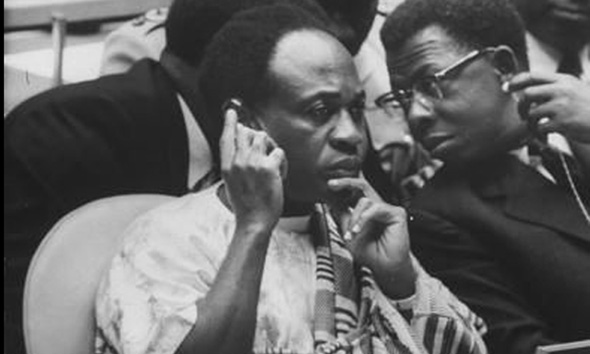
"The danger to world peace springs not from the action of those who seek to end neo-colonialism but from the inaction of those who allow it to continue." Kwame Nkrumah, Neo-Colonialism, p. 259
Next time you read about some corrupt African leader looting his country, lining the pockets of his cronies, stashing millions in Swiss bank accounts, buying villas in Paris and penthouse apartments in New York, setting up his playboy son to run some excessively lucrative state enterprise or another while the people of said country live in abject poverty, hold your reaction. Before you sigh and bemoan Africa’s cultures of corruption, callous despots, and managerial ineptitude, stop and ask yourself what’s missing from the picture. Continue reading . . .
OIL: Africa’s pipeline to prosperity?
Ian Gary, Senior Policy Manager for Extractive Industries at Oxfam America, joined me at Amherst College on December 8th for a screening and discussion on Africa’s oil challenges. Gary, who co-authored, Chad’s Oil: Miracle or Mirage? in 2005, reminded us that Africa’s oil boom will provide more that $400 billion to African governments through 2019. By 2015 the U.S. will get 25% of its imported oil from Africa.
Chad’s oil, to the surprise of no-one really, has hardly worked miracles. The country is no better off than it was before oil production began. Most economic indicators are down. The people in the oil-producing region are much worse off than they were before the oil boom. Farmers for the most part, many in the Doba Basin area are no longer able to access their lands, now dotted with drill pads and crossed by pipes and high tension cables. In 2010, the World Bank admitted that “in reality, close to 50 percent of expenditures has gone to the military.”
Chad, once the “model” for oil development (although one can argue that Chad was only a “model” until oil began to flow), has now joined the ranks of examples to avoid. The resource curse strikes again. Ghana is next, with its first oil shipping on December 15th. Will Ghana go the way of Chad or will the country get it right this time? Although the Ghanaian government has made pledges and promises, recent news suggests that there is some cause for concern (read a few of the latest articles posted on Ghana Oil Watch to get a sense of the troubles on the horizon).
Foreign Aid for Scoundrels
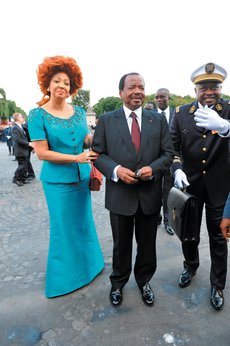
Cameroon’s President Paul Biya, center, with his wife Chantal Biya at a Bastille Day parade on the Champs Elysées, Paris, July 14, 2010. Photo: Orban Thierry/Sipa Press
Foreign Aid for Scoundrels by William Easterly | The New York Review of Books.
William Easterly has written an article in The New York Review of Books that seems fitting for reading on International Anti-Corruption Day. Easterly writes about the “dirty secret” of the international aid system: “Despite much rhetoric to the contrary, the nations and organizations that donate and distribute aid do not care much about democracy and they still actively support dictators. The conventional narrative is that donors supported dictators only during the cold war and ever since have promoted democracy. This is wrong.”
Cameroon and Paul Biya feature prominently in the article. Easterly points out $35 billion in foreign aid during the Biya era have led neither to poverty reduction nor growth in Cameroon. “The average Cameroonian is poorer today than when Biya took power in 1982.”
You can read more by Easterly on the “Aidwatch” blog: http://aidwatchers.com/
How Dick Cheney Ruined My International Anti-Corruption Day
Read this blog post by Ann Hollingshead from the Task Force on Financial Integrity and Economic Development. A reminder that when setting out to fight corruption and fraud, it’s a good idea to be beyond reproach.
Today is International Anti-Corruption Day, established by the United Nations, as a day of awareness for the issue. As the UN describes it: “Attitudes on corruption are changing. As recently as ten years ago, corruption was only whispered about. Today there are signs of growing intolerance toward corruption and more and more politicians and chief executives are being tried and convicted.”The United States has proven itself the world’s trailblazer …
via How Dick Cheney Ruined My International Anti-Corruption Day.
Apathy is not an option
Here’s a post from the ONE BLOG about the International Anti-Corruption Conference getting under way in just a few days in Bangkok. This is a major gathering with more than 1500 people from 130 countries scheduled to attend. I’m thrilled that my short film, Cameroon: Pipeline to Prosperity? will be screening at the conference.
Nov 4th, 2010 4:37 PM EST
By Malaka Gharib
Next week, delegates from more than 130 countries will converge in Bangkok, Thailand to participate in the world’s largest anti-corruption meeting, the 14th annual International Anti-Corruption Conference (IACC).
According to Andrew Marshall’s Time Magazine article “How Corruption Is Holding Asia Back,” corruption is a problem that affects dozens of countries across the world — not just developing nations — and has been met with increasing apathy and acceptance from both world leaders and citizens.
What is most alarming, says Mr. Marshall, is that corruption creates an environment in which dishonesty can thrive even further. Last year’s Transparency International report said that the most common source of bribe demands is the police. And in sub-Saharan Africa, corruption is one of the region’s major barriers to ending extreme poverty. In fact, Africa loses around $148 billion each year as a result of corruption alone.
As you can see, “corruption is everyone’s problem — and apathy is no longer an option,” says Mr. Marshall.
We couldn’t agree more. It’s our duty as advocates to make sure that people know that corruption hurts — not helps — the fight against poverty. We’re curious to see what comes out of this year’s IACC meeting and hope that the delegation makes some headway in this growing issue.
Good News for Journalists
Here’s some information from Thomson Reuters via the Task Force on Financial Integrity and Economic Development:
Thomson Reuters Holding Journalism Workshops in Africa on Tracking Illicit Money
November 4, 2010
By Clark Gascoigne
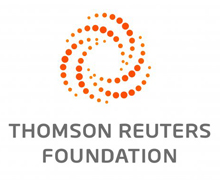
The Thomson Reuters Foundation is partnering with the Norwegian Agency for Development Cooperation (Norad) to hold workshops for journalists in African countries to improve their expertise in financial journalism (Full Disclosure: Norad is also a major financial supporter of the Task Force on Financial Integrity & Economic Development). The sessions will have a specific focus on how to track illicit financial flows out of the developing world.
From Thomson Reuters:
About 100 journalists, spread over eight courses in different African locations in the course of the next year, will receive intensive training to hone their financial reporting and analytical skills.
It is the first time the Thomson Reuters Foundation has teamed up directly with a national development aid agency to deliver this kind of training, although it has previously worked with multilateral organisations and local partners to run courses aimed at strengthening financial journalism in Africa.
The article continues:
A special angle in this new series of workshops is the issue of money being illicitly siphoned out of poor countries, often into tax havens. By its nature this is a highly sensitive topic, and a challenge for journalists to uncover.
The first 2 courses will be offered in Dakar (Nov 29-Dec 3, 2010) and Nairobi (Dec 6-10, 2010).
You can apply for the Dakar course here and the Nairobi course here.
Corruption Index
Transparency International has released its 2010 Corruptions Index. Chad ranks among the ten most corrupt countries in the world. Cameroon has made some progress — just a few years ago the country was at the bottom of the ratings — but is still mired in corruption.
Corruption was a problem in both Chad and Cameroon before Exxon began drilling. Organizations opposed to the World Bank’s involvement in the project warned that rampant corruption would certainly impact any poverty alleviation plans. They were right, but the World Bank knew this, too…which brings us back to the Bank’s crackdown on corruption. You can stop doing business with companies that bribe officials, but as long as those officials operate in a culture of impunity you’re not reducing corruption.
Definitions of corruption
Defining corruption is not as simple as one might think. The Asian Development Bank (ADB) website provides some interesting information on the definitions of corruption: “As a shorthand definition, ADB defines corruption as ‘the abuse of public or private office for personal gain.’ A more comprehensive definition is as follows: ‘Corruption involves behavior on the part of officials in the public and private sectors, in which they improperly and unlawfully enrich themselves and/or those close to them, or induce others to do so, by misusing the position in which they are placed.'”
I recently posted an article about anti-corruption efforts at the World Bank. I found the article interesting and the efforts of the Bank worth noting. However the fight against corruption has to go a lot further than crackdowns on bribery to be effective. If the Bank really wants to fight corruption, it has to work towards a cultural shift, supporting capacity-building measures that can help countries move away from a culture of impunity and towards the rule of law.
Worse, at times it appears that the Bank plays a double role: crackdowns on bribery and fraud on one hand, enabling projects that reinforce the status quo on the other.
Licence to probe: World Bank trains its sights on corruption crackdown
This is significant news from the World Bank so I’m posting the entire Guardian article below. I tend to agree with the author’s assessment: this is an important step in the right direction, but there’s a long, long way to go. I’m looking into non-compliance on aspects of the loan agreements with Chad and Cameroon that have not been effectively enforced. Avoiding obligations—with no apparent consequences—is not corruption. But it certainly doesn’t help advance the rule of law. And what better for corruption than a culture of impunity? I’ll be posting more about this soon.
Article by Larry Elliott, guardian.co.uk, October 8 2010

The World Bank’s latest anti-corruption initiative may sound a bit Bond, but it shows issues like fraud and bribery are being taken seriously. Photograph: Reuters
It will have 250 staff operating out of 150 countries and sounds like Ian Fleming dreamed it up. Yet the International Corruption Hunters Network (ICHN) is not something out of a James Bond novel, but the World Bank‘s latest initiative for stamping out bribery, fraud and the pilfering of money designed to alleviate poverty.
The idea is a good one. There are countless individual agencies around the world dedicated to stamping out financial crime: pooling their expertise should make it more difficult for the venal to get away with it. And not before time, since the taxpayers who last year provided the $70bn-plus spent by the World Bank in the field need to know that their money is not finding its way into numbered Swiss bank accounts or swelling the profits of unscrupulous companies.
C is for Corruption
This is an angry man. He’s standing in a 4 million CFCA (US$ 9000) fish pond. Well, it was supposed to be a fish pond.
When the last section of the pipeline was laid from the beach at Kribi to the offshore marine loading terminal, construction crews blasted away the reef at Bumé, the fishing village at “ground zero.” The fish left the area and for the population of Bumé, entirely dependent on fishing, this was a disaster.
The original pipeline plans did not include the reef’s destruction, so there was no mitigation plan in place when the crews came through. After much discussion, the consortium offered to construct two ponds for fish farming. Never mind that the villagers of Bumé are fisherman, not fish farmers, and that they have neither the skills nor the resources for aquaculture. These artisanal fishermen paddle out with their nets out once or twice a day, catching relatively small amounts of fish in the shallow waters. This is subsistence fishing: they bring in just enough to eat and, if all goes well, sell a few fish each day.

